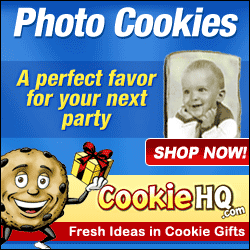

Parenting: Myths and The Truth About Breast Feeding ...by Bill Knell
Bare breasts have always interested babies and men, but now they are being used to promote everything from fringe parenting methods to cookies. Cases in point: A recent Time Magazine cover features a fully clothed woman with what appears to be one breast exposed for the purpose of breast feeding her four year son; yes I did say her four year old son. Another photo is part of an ad campaign in South Korea and shows an infant feeding on a woman's breast. The ad is for Oreo Cookies and features the caption, "Milk's favorite cookie. Oreo."
Before I get going on all of this I want to be fair. Breast feeding older children, especially males, is a cultural phenomenon in many Asia countries and other places around the globe. That said, I do not live in an Asian country and there comes a time when someone has to stand up to what amounts to an almost passive, but harmful form of child abuse. There are many reasons not to breast feed children past the age of one or two years.
I am not opposed to alternative parenting methods. There are people, including experts, that swear by experimental or extreme child rearing techniques, but that doesn't mean they all work or are even safe. I am sure that the parent who recently made her child run for hours as a form of punishment thought she was spot on when it came to disciplining her child. The problem is that the child died as a result. In another case a mother made her twelve year old girl wear diapers to school because the child got a few bad grades. I will not even bother to mention the parents that beat their children almost to the point of death because they believe the kids are possessed by the devil.
So what actually is the damage in allowing children well past the infant stage to breast feed? Peer pressure for one thing. Children can be mean and I am certain that the four year old featured on the cover of Time will not be well received by his peers. There is also the issue of what is good for the mother. It has been my experience that while breast feeding may be a good way for a mother and child to bond, once it goes past the infant stage a woman runs the risk of becoming obsessed with their child. Especially male children.
A good example of this is a woman that I know who lives in New York City. She is a relative by marriage and tried to breast feed her son until he was almost six years old. She only stopped trying because his school began to complain that her son mentioned the breast feeding to a teacher and told the educator that he wished his mom would stop. Now an adult, he cannot move out of his mother's house because she says that if he does she will kill herself.
Let's go back to the beginning. Given the recent problems with infant formulas that were outdated or compromised with dangerous ingredients, breast feeding has come back into style in a big way. This has given rebirth to the argument about breast feeding verses formula. The unpopular truth is that not all women should breast feed. Some women experience sore or cracked nipples, embarrassing leakage, the problem of trying to find a place where they can breast feed modestly in public, pass on medications they take to their child, discover their breasts become misshapen, or may over feed without a way to properly measure their child's intake.
Some problems are easily fixed. Special bras and tops make public breast feeding easier and many stores and restaurants now provide private spaces for that purpose. Women who want to breast feed also have the option of using a breast pump to measure out the correct amount of nourishment for their child, avoid scrutiny by using a bottle when feeding in public and spare themselves the pain inflicted by infants that have teeth coming in. However, there is still the problem of proper diet and age. There are studies that show women who give birth after the age of forty are more likely to breast feed their children, but may not be able to pass the correct nutrients on to their kids.
Contrary to recent and highly suspect information about breast feeding, what a mother eats does effect the amount of nutrition their child receives from breast feeding. This is especially true if the mom is a vegetarian or does not have a well balanced diet. That doesn't mean that she cannot breast feed, but it does require the addition of formula or special supplements to the child's diet that are approved by a doctor or licensed nutritionist.
In the end I feel that the Time Magazine cover and the various ads featuring breast feeding moms and their kids are less about the breast feeding debate and more about making sales. However, I am concerned about the amount of false or misleading information that comes along with the hype of provocative photos. Before you make any decision about breast feeding regarding benefits verses problems and how long is too long when it comes to breast feeding past infancy consider this: Breast feeding is NOT a one size fits all issue.
Every woman and child is different. Despite constant attempts to classify body types, the necessary daily intake of vitamins and various foods, and how much is too much, our bodies all beg to differ. Genetics often dictate our body types and the amount of food we need to stay healthy. With that in mind, any woman trying to make a decision about breast feeding should stop reading those pamphlets found in doctor's offices and actually ask the doctor for a recommendation.
Experts disagree on many aspects of breast feeding, that's why the decision you make about breast feeding and all the aspects of it should be yours alone. That decision must be based on established facts, not trendy child nutrition or parenting methods, and should take into consideration the needs and wellbeing of yourself and your child.
As a professional writer Bill accepts various paid writing assignments. Articles on most any topic are his specialty. He is also a non-fiction ghost writer for people who have an idea or story to tell without the skills to create a submittable book manuscript. Sorry, he does not accept term paper or technical writing assignments. Bill can be contacted on
FACEBOOK.
BACK to Doctor Know
©




